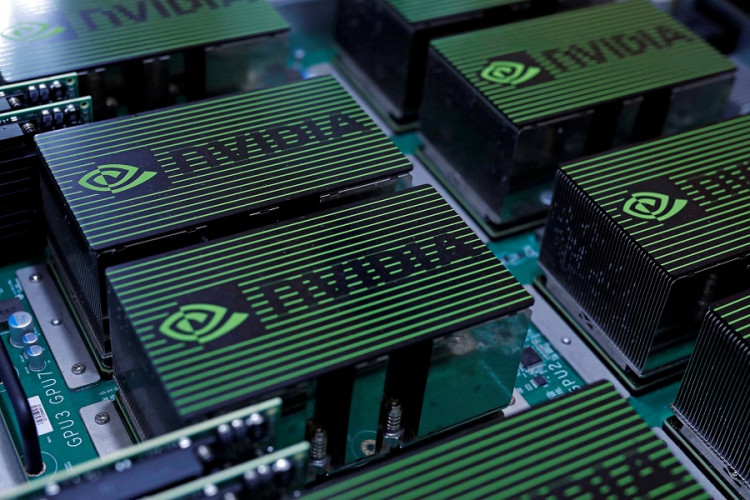Saudi Arabia, through the King Abdullah University of Science and Technology, has acquired at least 3,000 Nvidia H100 chips valued at about $1.2 billion, set for delivery by the end of 2023. The university plans to utilize these chips to develop its own advanced language model.
The H100, priced at $40,000, is touted by Nvidia's CEO, Jensen Huang, as "the world's first chip specifically designed for generative artificial intelligence." Research indicates that the H100 is currently the most sought-after GPU for training large language models, as it offers unparalleled speed for both inference and training and often delivers the best cost-to-performance ratio for inference.
Major tech companies globally are vying for these scarce chips vital for AI development. Last week, the Financial Times reported that Chinese tech giants like Tencent and Alibaba are ordering Nvidia's high-performance chips. Leading U.S. firms developing advanced language models, such as Microsoft-backed OpenAI and Google, are also purchasing Nvidia's chips. Insiders close to Nvidia and its manufacturer TSMC have stated that around 550,000 H100 chips will be shipped globally in 2023, with the majority going to U.S. tech companies.
The King Abdullah University of Science and Technology also boasts at least 200 Nvidia A100 chips and is constructing the supercomputer Shaheen III, set to launch this year. This machine will run 700 of Nvidia's super chips named Grace Hopper, crafted for cutting-edge AI applications. Sources close to the university reveal that it intends to use these chips to build its advanced language model. The Financial Times has reported that a significant number of researchers in the Provable Responsible AI and Data Analytics lab, responsible for developing this model, are from China. They've chosen to work at this university due to U.S. government restrictions that prevented them from studying and working in the U.S.
Gulf Sovereign Funds Engage with Western Companies
Meanwhile, the UAE has also secured thousands of Nvidia chips. The country's state-owned Technology Innovation Institute in Masdar City, Abu Dhabi, has developed its open-source advanced language model named Falcon.
Falcon, now available online for free, underwent two months of training earlier this year on 384 A100 chips. A leading AI researcher and expert on large language models remarked, "Considering the resources they utilized, this model is impressive. For a time, it was one of the best in the open-source community."
An individual from the UAE's industrial development sector disclosed that the UAE government has purchased a batch of new Nvidia chips to prepare for more applications and cloud services related to advanced language models. "The UAE has made its choice... to own and control its computing prowess and talent, to possess its platforms, without depending on Chinese or American entities," commented an insider familiar with the UAE government's thinking. "Significantly, they have the capital and energy resources to do this and are attracting top talent globally."
Furthermore, both Saudi Arabia and the UAE oversee some of the world's largest and most active sovereign investment funds. CEOs of two European AI firms revealed that representatives of these funds recently approached Western AI startups, offering computational resources in exchange for code and expertise in advanced language models. However, these overtures were declined. One executive noted, "We received numerous funding and data access offers with the intent of indirectly leveraging our talent."
The Gulf Region's AI Aspirations
In 2017, the UAE became the first country globally to establish a dedicated AI department, having passed the "2031 National Artificial Intelligence Strategy" and the "UAE National AI Plan," aiming to cement its position as a global AI hub.
Earlier this year, the UAE launched the "Generative AI Guide," emphasizing its intent to solidify its global stature as a pioneer in the tech and AI domains, serving as a "regulatory framework to curb the negative use of technology."
OpenAI CEO, Sam Altman, praised the UAE's foresight in understanding the significance of AI during his visit to Abu Dhabi this June. He believes the Gulf region can "play a central role in the global dialogue surrounding emerging technologies and their regulation."
A study conducted in July by Coursera, one of the world's largest online learning platforms, in collaboration with UK consultancy YouGov, surveyed over 500 business leaders in the UAE. The results revealed that 85% believe generative AI will reshape their customer service or business operations in the next three years, with 91% deeming it crucial for business growth.
A report by global consultancy firm PwC highlighted that both the UAE and Saudi Arabia have shown a "firm commitment to the development and implementation of AI technology." The report projected that by 2030, AI would contribute nearly 14% to the UAE's GDP and 12.4% to Saudi Arabia's GDP, accounting for a $135 billion boon to the Saudi economy, making it the biggest beneficiary of this technology in the Middle East.
Saudi Arabia's Vision 2030 and the 2020 National Transformation Plan underscore digital transformation as crucial for economic diversification, invigorating economic sectors, supporting industries and private sector entities, advocating for public-private business model development, and eventually reducing the country's reliance on oil revenue, as per the report.
On July 26, as reported by "Arab News," Saudi Arabia's Crown Prince and Prime Minister, Mohammed bin Salman, approved the establishment of an International AI Research and Ethics Center in Riyadh. The center aims to promote good practices in AI adoption, support national and international research, development, and initiatives, and ensure the ethical and responsible use of AI.






